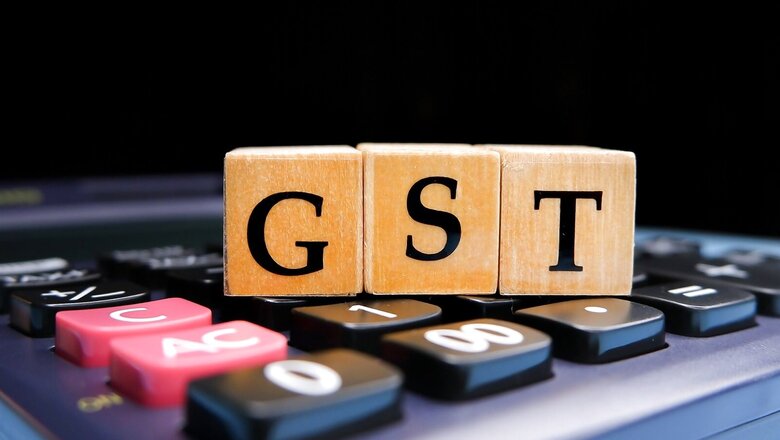
views
A goods and services tax (GST) of 5 per cent will now be levied on room rent, excluding ICU, exceeding Rs 5,000 per day per patient charged by a hospital. The tax will be without the input tax credit option. The new levy is effective from Monday, July 18. The 47th GST Council, which met late-last month, made this decision as part of a larger tax rate rationalisation exercise.
The GST on hospital room rent will increase the cost of healthcare for patients, as well as introduce compliance and related challenges for the industry. On a room rent of Rs 6,000 per day, the patient will have to pay a GST of Rs 300. And, in case the patient stays in the hospital for 3 days, the GST will be 900. It means that the patient will now have to pay Rs 18,900 for a three-day stay in the hospital, compared with Rs 18,000 he would have paid earlier. The health sector is exempt from GST.
Sameer Jain, managing partner of PSL Advocates & Solicitors, said, “GST of 5 per cent on hospital rooms above Rs 5,000 per cent day is set to increase the cost of healthcare for consumers. Further, non-availability of input credit on the said GST means that it will be a cost and cannot be availed as credit of tax. Further, hospitals will have to undertake increased compliance for the said GST levied. Considering a lot of patients are admitted for longer periods, the cumulative effect of tax may weigh heavy on consumers.”
The new levy was recommended by the GST Council in its 47th meeting, which took place in late June. The recommendations have become effective from July 18. Apart from 5 per cent GST on hospital rooms, the Council also suggested the tax on a number of items, including pre-packaged foods as the government has decided to put them under the ambit of GST.
Ankit Jain, partner at Ved Jain & Associates, said, “By keeping the threshold limit of rent of Rs. 5000 per day, the Government aims to tax the upper class of people. However, this limit is quite low especially for the metro cities of India where this is the starting rate of rooms in good hospitals. Patients with small stays or single treatments may not find it too costly, but patients having chronic diseases such as diabetes, cancer, etc. which require frequent visits to the hospitals will definitely feel the pinch of the tax.”
The Council had also decided to go for a rate hike on several daily essential items. Single packages of food items like cereals, pulses and flour weighing up to 25 kg will be considered as ‘prepackaged and labelled’, and liable to 5 per cent GST from July 18, the tax department has said.
“With effect from the July 18, 2022, this provision undergoes a change and GST has been made applicable on supply of such “pre-packaged and labelled” commodities attracting the provisions of Legal Metrology Act, as detailed in subsequent questions. For example, items like pulses, cereals like rice, wheat, and flour (aata), etc., earlier attracted GST at the rate of 5% when branded and packed in unit container (as mentioned above). With effect from 18.7.2022, these items would attract GST when “prepackaged and labelled”. Additionally, certain other items such as curd, lassi, puffed rice, etc., when “prepackaged and labelled” would attract GST at the rate of 5 per cent with effect from the 18th July, 2022,” the Central Board of Indirect Taxes and Customs (CBIC) said on Monday in a statement.
Abhishek Jain, tax partner at KPMG in India, said, “The government has issued much-needed clarification in respect of GST applicability on pre-packaged and labelled goods, especially in light of supply of food items like pulses, flour, etc, a change which will implemented with effect from July 18, 2022. Earlier, GST levy was limited to branded food items packed in unit containers, so this amendment widens the GST net. Some key clarification issued include that the terms pre- packed and labelled will be read in light of the Legal Metrology Act, and as such packages in excess of 25 kgs, and supplies to industrial consumers will be exempt from GST levy.”
Read all the Latest News, Breaking News, watch Top Videos and Live TV here.




















Comments
0 comment